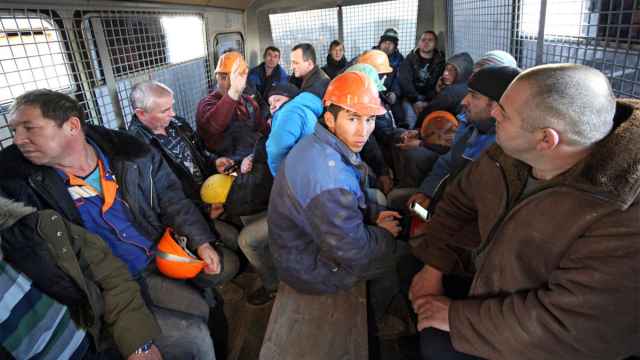Курица: chicken, a silly bird
As usual, I was stumped as I read through the morning Russian newsfeed. I had come across the puzzling headline: Рубли по осени считают (literally “rubles are counted in the fall”).
Knowing Russian headline writers’ propensity for clever rephrasing of common expressions, I started poking around in my reference books and stumbled on цыплят по осени считают (chickens — literally chicks — are counted in the fall). This is the Russian version of “don’t count your chickens until they’re hatched.” But in Russia’s more severe climatic conditions, hatching was just the first hurdle. The chicks had to survive the perils of summer — drought, flooding, hungry cats and dogs, illness, and so on. So you only count them in the autumn when they’re a sure thing.
So that’s the allusion behind the headline Рубли по осени считают, which had this sub-header: К сентябрю нас может ждать стабилизация курса национальной валюты, рост зарплат (By September we can expect the national currency to stabilize and incomes to rise.)
I get what it means. I just don’t get why this all happens only in the fall. Does the ruble spend the summer on the beach?
Accepting once again that I am not a macro-economic genius, I decided to forego financial news and concentrate on chickens.
The chicken does not have a great reputation in Russia and the Russian imagination. Chickens are odd: they have wings but don’t fly. They don’t make nests. They are said to fear water and darkness. They are thought to be stupid. That’s why in Russian: рак — не рыба, а курица — не птица (a crayfish is not a fish and a chicken isn’t a bird).
I don’t think chickens are as stupid as they are made out to be, so it’s probably a grave insult to the clucking clans to speak of куриная память (literally, a chicken’s memory). In English we go for a kitchen comparison, not a barnyard one: Куда, в какой карман я сунул свой билет? У меня куриная память! (Where did I — what pocket did I shove my ticket into? My memory is like a sieve.)
Because chickens are kind of innately comical, the expression курам на смех (chickens find it funny) is used when something is so hilarious or outrageous that even dumb chickens would laugh. If chickens could laugh, that is. In English, we change the creature: Доходная часть бюджета ― 22 миллиарда долларов ― для такой страны, как Россия, ― это курам на смех. (The income part of the budget — 22 billion dollars — for a country like Russia would make a cat laugh.)
But I’m happy to say that English speakers agree with Russian speakers on one aspect of chicken-hood: the marks they make in the dirt are very much like bad handwriting. In Russian it’s как курица лапой (like a chicken [wrote it] with its feet). Прочитав объяснение, учитель ничего не понял. Почерк был ― как курица лапой (The teacher read through the explanation but couldn’t make out the handwriting — it was like chicken scratches.)
Chickens, unlike their other barnyard bird friends like ducks and geese, don’t have feathers that water slides off of. So if they get caught in the rain, they look like, well, something the cat dragged in. Мокрая курица (a wet hen) can describe how someone looks: Он бродил по бульвару как мокрая курица (He was a sorry sight as he wandered along the boulevard.) But it can also describe the inner bedraggled state. One guy was surprised to discover that his girlfriend didn’t have much spunk: Я думал, ты мне боевая подруга, а ты мокрая курица (I thought you were my feisty girlfriend, but you’re a spineless worm.)
In general being мокрая курица is not a good thing: Он — дурак, бездельник, лентяй, грязная муха, мокрая курица, дерьмо… (He’s an idiot, a slouch, a loafer, a dirty fly, and a spineless pile of crap.)
But it’s probably no worse than being a ruble that’s only counted in the fall.
Michele A. Berdy is a Moscow-based translator and interpreter, author of “The Russian Word’s Worth,” a collection of her columns. Follow her on Twitter @MicheleBerdy.






